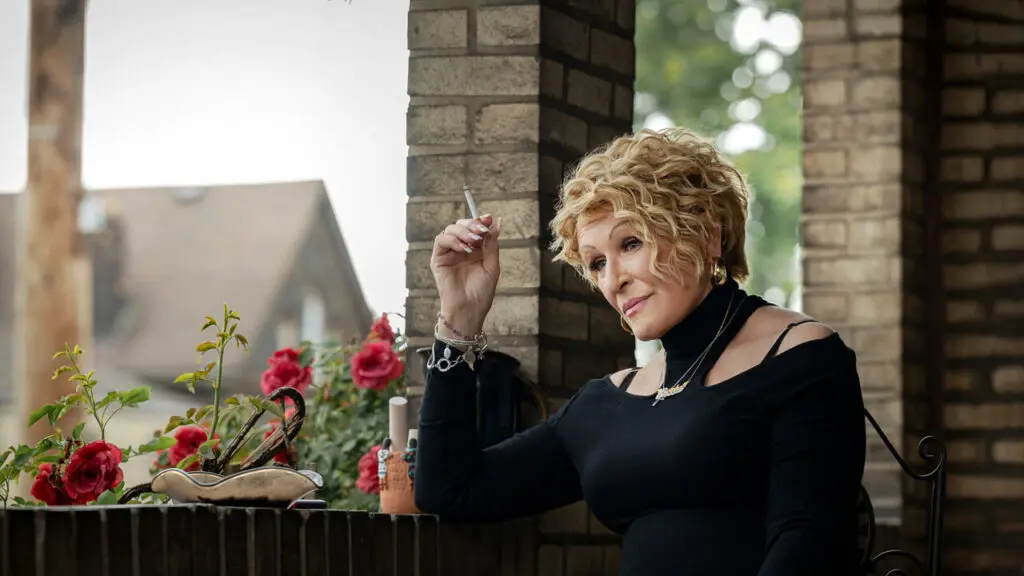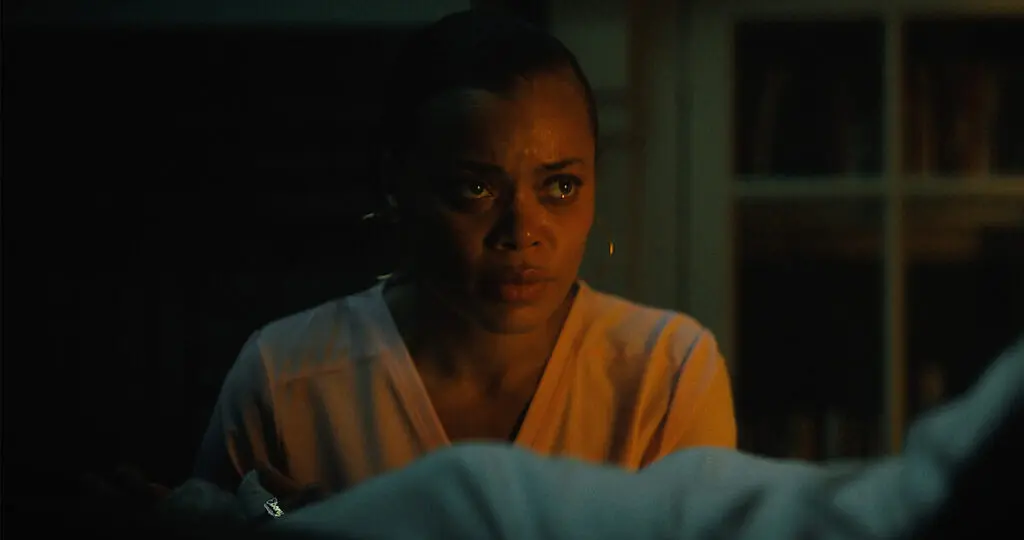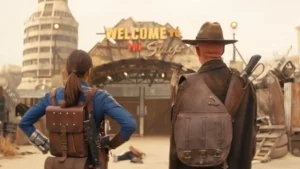Summary
The Deliverances goes beyond traditional horror. It intricately weaves faith and societal issues within a broken family, birthing many themes worth analyzing.
Lee Daniels’ The Deliverance will be reduced to an exorcism story. Reducing movie analysis is a usual get-out when dealing with a provocative movie about important nuisances. There’s a keen, mirroring message in this horror that starts with a broken home.
The story, inspired by the real-life experiences of Latoya Ammons, follows single mother Ebony (Andra Day), who moves into a new home with her three children and mother, Alberta (Glenn Close), in Gary, Indiana. The family experiences demon-like occurrences that manifest into something more dangerous as the film progresses.
As a premise, the framework of The Deliverance will not cause any astonishment or feelings of originality. It’s simply a horror movie revolving around a house slowly falling apart. It’s a popular theme: Netflix embraced it with Remi Weekes’ His House, and in serial format, M. Night Shyamalan’s Servant is the prime example of this type of sub-horror evolving into a weekly mystery.
The Deliverance is more about the “why.” Why is this family specifically enduring the horrors that transpire in this movie?
Audiences seeking thrills and jumps will be disappointed. The film is a character examination. Ebony, assumedly, has a torrid past. There’s an inclination that she’s struggled with drugs and alcohol and an angle that suggests she has pushed boundaries with her children, bordering on abuse.
Andra Day plays the character with deprecation. Ebony is a walking, self-inflicted victim of her past, traumatized by life’s failure to succeed on a specific path. I was impressed with the range; her vulgarness is ugly, but often, you see the character’s yearning to be a caring mother shine through the layers of hatred within her. It’s a brilliant performance.
The character supporting the mother’s experiences, which equally makes The Deliverance worthwhile, is Ebony’s mother, Alberta, played by Glenn Close. A supporting performance worthy of awards, Alberta represents the character with an alternative view. She has experienced the darkness and brings her perspective from the light.

Glenn Close puts in an award-worthy supporting performance in ‘The Deliverance’ (Credit – Netflix)
The movie juxtaposes themes that will provoke some audiences but, on the other hand, will be massively misunderstood. The Deliverance is heavy with religious meaning in the backdrop, but fronting the family are the social problems that haunt them. Broken homeness is the variable to the experiences faced, and what melds it all together is the pre-proposed demon.
In that sense, The Deliverance makes the demon-like occurrences secondary to the circumstances. It feels necessary to understand that the demon is not important at all. While watching the horror, it’s important to place the horror to the side and focus on the circumstances that swindle the family, which extends to the school and the social services officer.
The perspective of the other characters is no less important due to the occurrences that impact them. The meaning behind the story results in the circumstances and the occurrences being tied together, knotted tightly into a single entity.
The exorcism is the crux and pre-defined. It’s the generic component of the story, which audiences may labor and wait upon. However, the best use of time is to sit and examine the thematic layers burdening the characters: the broken home syndrome, the sufferings of children, finding light after a dark past, and finally, the ultimate awakening of finding Jesus Christ.
Yes, eye-rolls will follow with my lay-up to Christianity there. Unfortunately, due to the nature of our secular society, secularists support the separation of church and state, which means the themes are oddly misconstrued in profound, meaningful films.
Secularist viewers will separate the religious meaning from Ebony’s circumstances. They will not conclude that the lack of faith, a father absent from the home, discipline, and conscientiousness in the family home are tied to the downfalls of a secular vision.
Meanwhile, followers of Jesus Christ will see only their faith with a movie plainly tying the loose ends of a family’s circumstances due to their lack of holy awakening.
There’s no correct answer; it depends solely on how you view it. Servant had similar, long-threaded themes.
While allowing this movie to breathe amongst its audiences, my main interest is how it will be perceived. It’s a sad shame if it’s reduced to a predictable horror with a predictable outcome. I sincerely believe Lee Daniels and his co-opted writers had a vision. That vision attacked the gray area between life decisions and faith, manifesting it into horror.
The Deliverance has far more meaning than its presentation. It deserves analysis, especially with the amount of mirroring that takes place.
RELATED:




